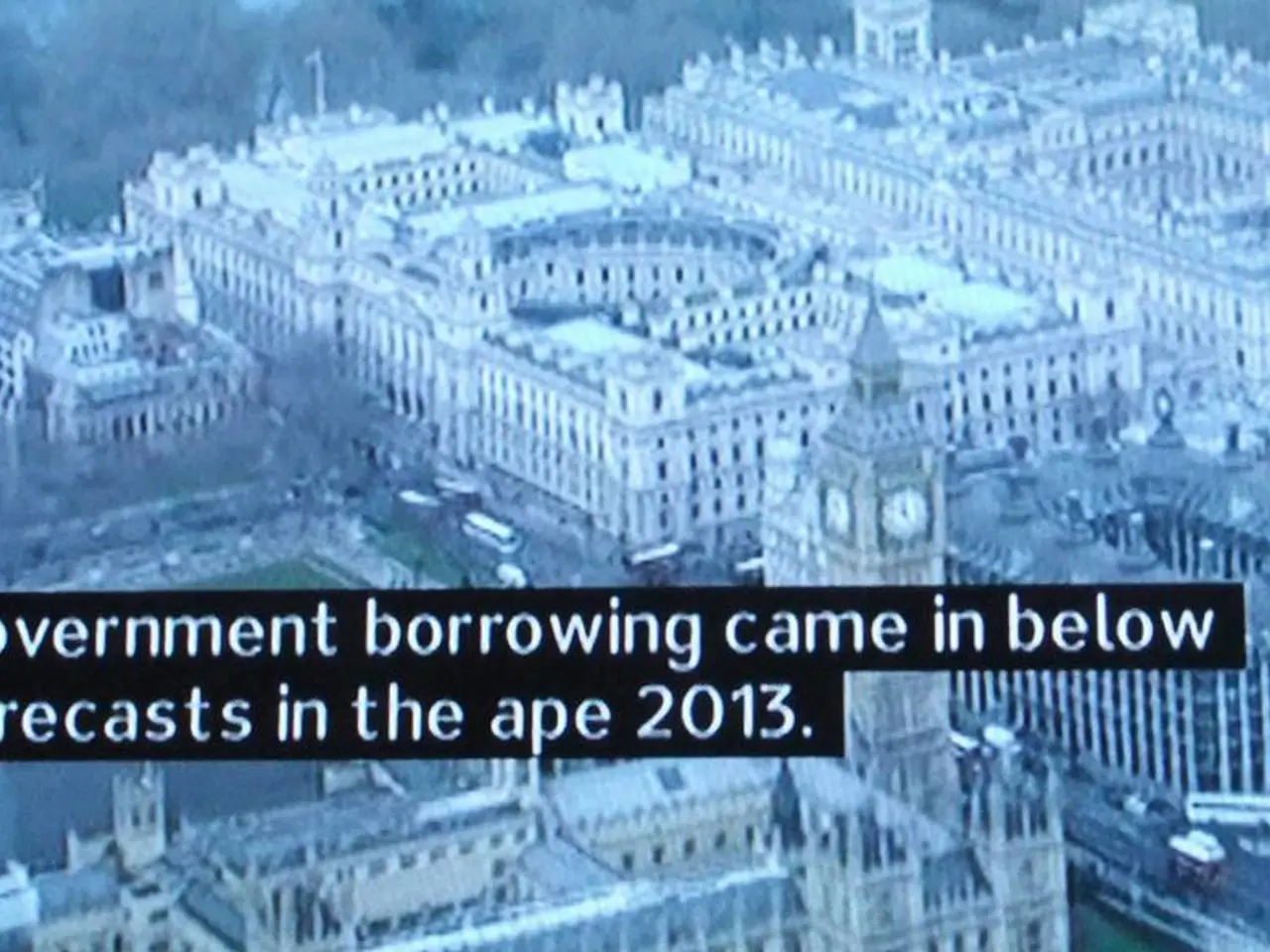Finance minister in Israel persists in advocating for settling expansion projects
In the ongoing conflict between Israel and Palestine, the situation in Gaza remains volatile and dire. According to reports, over 52,000 Palestinians and approximately 1,200 Israelis have lost their lives since October 2023, with the death toll continuing to rise [1][2][3].
A ceasefire, mediated in January 2025, momentarily paused hostilities but collapsed by March 2025, leading to renewed Israeli military offensives and a two-month blockade causing famine-like conditions in Gaza. The latest casualties include dozens of people, with about half of the fatalities occurring in the city of Gaza, and several reported deaths at humanitarian aid distribution points [1][2][3].
Residents in Gaza fear this could be preparation for an Israeli ground offensive, as the Israeli army chief has approved the deployment plans for the war escalation decided by Netanyahu’s security cabinet [1].
Regarding settlement construction, international criticism highlights continued Israeli actions amounting to annexation and settlement expansion, undermining political settlement efforts. Israeli officials have indicated aims to annex large parts of the Gaza Strip despite ceasefire deals and promises to withdraw from border corridors not being fully honored [2].
The United Nations and humanitarian bodies have condemned Israeli actions restricting aid and escalating military operations as violations of humanitarian principles and international obligations. The UN Secretary-General António Guterres warned in July 2025 that the conflict is "at a breaking point," cautioning against a one-State reality of occupation and inequality that contravenes international law and UN resolutions. He strongly advocated for the urgent implementation of a two-State solution based on pre-1967 borders, with East Jerusalem as the capital of Palestine [4].
The Israeli right-wing finance minister, Bezalel Smotrich, has plans to approve tenders for the construction of around 3,400 additional settler homes in the West Bank [1]. However, these settlements, which house over 700,000 settlers among around three million Palestinians, are illegal under international law [1].
As the conflict continues, the international community urges both parties to commit to a peaceful resolution, uphold humanitarian principles, and work towards a two-State solution in line with international law and resolutions. The humanitarian crisis in Gaza demands immediate attention and action to alleviate suffering and pave the way for a more stable and peaceful future for all.
Sources:
[1] Associated Press. (2025, August 1). Israel's right-wing finance minister approves new West Bank settlement homes. Reuters. Retrieved from https://www.reuters.com/world/middle-east/israels-right-wing-finance-minister-approves-new-west-bank-settlement-homes-2025-08-01/
[2] Al Jazeera. (2025, July 30). Israel approves new West Bank settlement tenders. Al Jazeera. Retrieved from https://www.aljazeera.com/news/2025/7/30/israel-approves-new-west-bank-settlement-tenders
[3] United Nations Office for the Coordination of Humanitarian Affairs (OCHA). (2025, August 5). Humanitarian Bulletin: Gaza Strip. United Nations. Retrieved from https://ochaopt.org/content/humanitarian-bulletin-gaza-strip-2025-08-05
[4] United Nations News. (2025, July 27). UN chief warns of 'breaking point' in Israel-Palestine conflict. United Nations. Retrieved from https://news.un.org/en/story/2025/07/1092252
- The ongoing political tensions and military conflicts in the Israel-Palestine region have caused severe food shortages, as the Israeli army's renewed offensives and blockade have exacerbated the already dire situation in Gaza, resulting in famine-like conditions.
- Amidst the escalating war-and-conflicts, there is increasing international pressure on Israel to cease illegal settlement construction in the West Bank and Gaza Strip, as these actions violate humanitarian principles, international obligations, and undermine any prospects of a peaceful, two-state solution.






